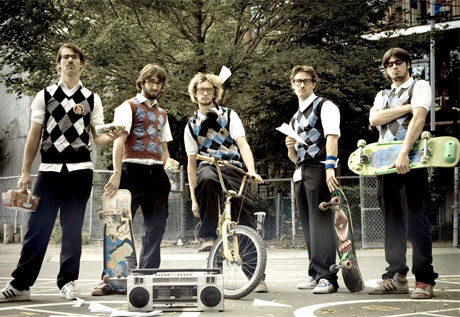In Mr. Turner, Mike Leigh's acutely detailed analysis-cum-biopic of famed landscapist J.M.W. Turner during his later years, the melding of content and form are of chief concern. Turner's compositions, which are preoccupied with the seeming insignificance of man, an animal in relation to an oppressive, expansive environment on the precipice of engulfing all, serve as a telling meta-textual backdrop to our protagonist and his view of the world he inhabits.
Though Leigh's trademark sensibilities and altogether glum worldview are omnipresent, blending the banal or grotesque with the sublime, there's an overriding aesthetic consciousness of artistry and mise-en-scene that permeates every sequence of this telling character portrait. Turner, whose artworks are revered amidst a cultural subsection of elitists and dilettantes, maintains a blue-collar ethos, spitting on his works and eschewing unnecessarily cumbersome modes of financial remuneration in favour of simply hanging his works in museums.
As a character, Turner seems perpetually at odds with social convention and expectation. When taking a young prostitute, he positions her like a portrait model and cries once he establishes her age and likely life trajectory. Conversely, he romances a plain widow (Marion Bailey), attracted to her humbleness and sincerity amidst a landscape of overriding pretence. Leigh captures this with a deliberately framed gaze, capturing the manner in which light reflects of objects when not stepping back to assess the figure of man in relation to environment. It's his way of utilizing the work of his subject to frame his life achievements and signifiers, emulating Turner's perspective to exaggerate the overall ideological makeup of a man that understands the insignificance and absurdity of it all.
This preoccupation with detail does hinder the basic flow of narrative, however. Leigh, whose works have typically fallen into boilerplate drama territory, has a less immersive perspective here. Where conversations and character interactions have been particularly nuanced and gritty in his earlier films, there's a partial void here where aestheticism takes over. Though it works within the constructed framework, it does mean that Mr. Turner is a tad slower and lacking in the sort of clarify that Leigh's previous efforts have demonstrated.
Still, the careful consideration of each frame and the meticulous detailing of juxtaposition and individual idiosyncrasy — the pining looks of a syphilis-ridden maid and the minor self-consciousness of secondary characters — creates a universe unto itself and a basic sensibility. Though the social machinations and basic customs everyone adheres to are inherently irrelevant and silly — particularly in a world that could be wiped out by a tidal wave (channelling Turner's portraits) at any moment — there's a detailed awareness of the tiny factors that make every individual inherently human. Amidst the cynicism is also a hopeful, even awestruck view of the minute attributes that demonstrate frailty and humanity lingering in the periphery of a performed identity.
(Mongrel Media)Though Leigh's trademark sensibilities and altogether glum worldview are omnipresent, blending the banal or grotesque with the sublime, there's an overriding aesthetic consciousness of artistry and mise-en-scene that permeates every sequence of this telling character portrait. Turner, whose artworks are revered amidst a cultural subsection of elitists and dilettantes, maintains a blue-collar ethos, spitting on his works and eschewing unnecessarily cumbersome modes of financial remuneration in favour of simply hanging his works in museums.
As a character, Turner seems perpetually at odds with social convention and expectation. When taking a young prostitute, he positions her like a portrait model and cries once he establishes her age and likely life trajectory. Conversely, he romances a plain widow (Marion Bailey), attracted to her humbleness and sincerity amidst a landscape of overriding pretence. Leigh captures this with a deliberately framed gaze, capturing the manner in which light reflects of objects when not stepping back to assess the figure of man in relation to environment. It's his way of utilizing the work of his subject to frame his life achievements and signifiers, emulating Turner's perspective to exaggerate the overall ideological makeup of a man that understands the insignificance and absurdity of it all.
This preoccupation with detail does hinder the basic flow of narrative, however. Leigh, whose works have typically fallen into boilerplate drama territory, has a less immersive perspective here. Where conversations and character interactions have been particularly nuanced and gritty in his earlier films, there's a partial void here where aestheticism takes over. Though it works within the constructed framework, it does mean that Mr. Turner is a tad slower and lacking in the sort of clarify that Leigh's previous efforts have demonstrated.
Still, the careful consideration of each frame and the meticulous detailing of juxtaposition and individual idiosyncrasy — the pining looks of a syphilis-ridden maid and the minor self-consciousness of secondary characters — creates a universe unto itself and a basic sensibility. Though the social machinations and basic customs everyone adheres to are inherently irrelevant and silly — particularly in a world that could be wiped out by a tidal wave (channelling Turner's portraits) at any moment — there's a detailed awareness of the tiny factors that make every individual inherently human. Amidst the cynicism is also a hopeful, even awestruck view of the minute attributes that demonstrate frailty and humanity lingering in the periphery of a performed identity.




